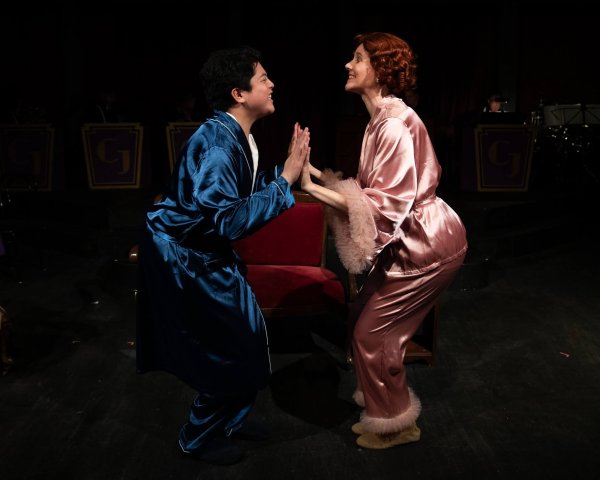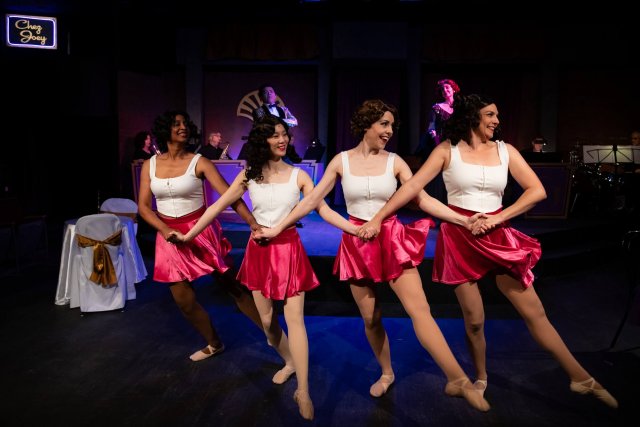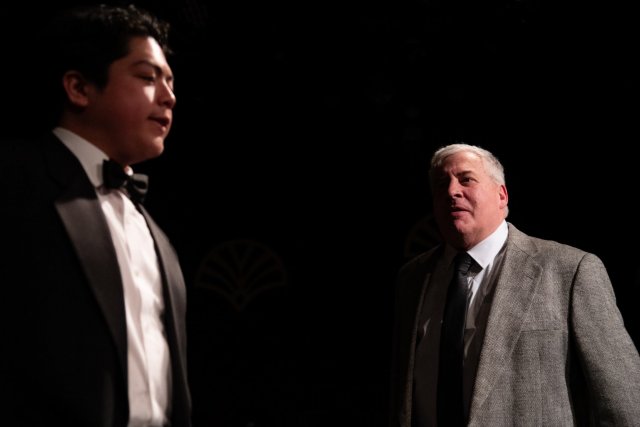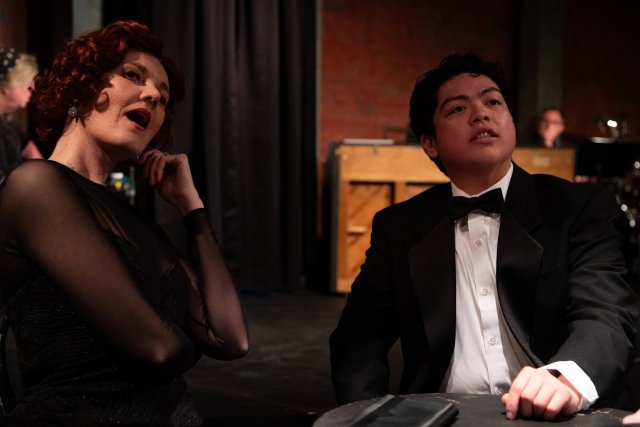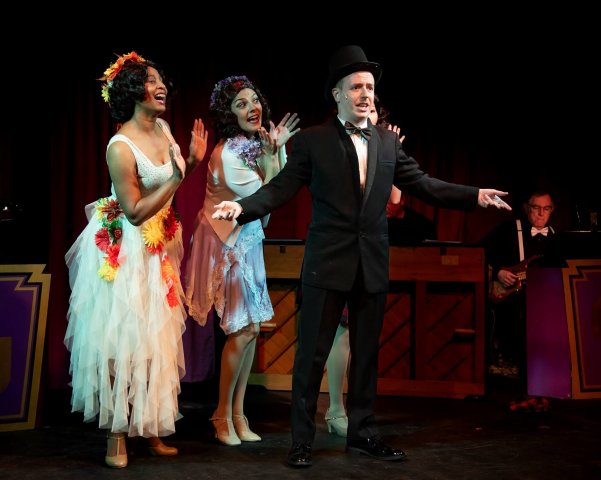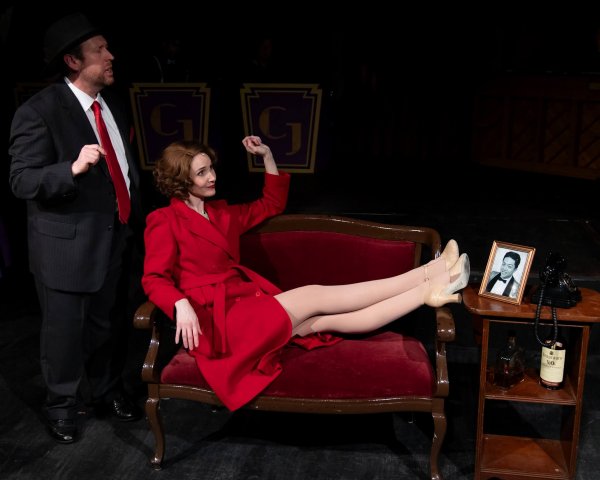Pal Joey
Rodgers and Hart's Greatest Cad
By: Victor Cordell - Apr 01, 2024
Patrons may wonder how theater companies select their offerings. It may be the board of directors’ feeling that a show will do well selling tickets; or an artistic director’s personal preferences; or a nod to a show’s social or intellectual content.
Given the gender politics and social mores of today, “Pal Joey,” which had a successful but not sensational launch on Broadway, comes as a bit of a surprise. But to its advantage, it’s not cloying like many musicals from its 1940 era. Instead, it possesses rare edginess that gives it greater currency, with numerous sexual references that would not have passed Hayes Code censorship if it were a movie from the same time.
Joey, the lounge singer and emcee central character, is an all-around heel - a womanizer, congenital liar, and manipulator, though he does have sufficient native charm to mostly get away with it. Mrs. Simpson, or Vera, the female lead, is a crushingly domineering cougar who cuckolds her shady, unseen husband. So it’s hard to have great sympathy with the main characters, but at least there’s a plot, albeit with skips and jumps, in an interesting milieu.
The action takes place in the nightclub world of Chicago, which would have been pretty unseemly as well. Interestingly, the 1957 movie adaptation has better-defined relationship development and takes place in San Francisco, which probably would have greater local appeal than the original stage version. Some fine Richard Rodgers music adorns the story, albeit with Lorenz Hart lyrics that usually click, but sometimes fail to drive the plot forward.
Some musicals would seem almost empty without their signature tune, and so it is with “Pal Joey.” The beautiful, beguiling “Bewitched, Bothered, and Bewildered” stands as one of the great American standards. The simple melody with its brilliant recurring octave leaps in only two steps is unmatched, and the rhythmic alliteration and lyrics of its many verses running from lover’s remorse through reprisal add to its emotional power and appeal.
Maria Mikheyenko as Vera delivers the full version of the anthem and its reprise with great beauty and agility in her vibratoed mezzo-soprano singing voice. As Joey’s patroness, Mikheyenko also captures Vera’s world weariness and oppressive controlling personality with great skill.
The other memorable number is a nicely delivered “I Could Write a Book,” a love song that Joey sings with Linda, the other party to a not-well-explicated link in a love triangle (much clearer in the movie). Nico Jaochico is Joey, and while his portrayal demonstrates his confidence and charisma, he lacks sufficiently mature appearance and uneasy demeanor to convey the weight of having suffered rejection as a performer in several cities throughout the Midwest.
Several elements help lift the Altarena Playhouse production. Some actors in secondary roles add spark. Dan Kolodny plays Ludlow Lowell, the artistic manager with extra persuasion, talking like a hammy heavy out of a casting call for a Damon Runyon play. Max Thorne doesn’t have a lot to do in three bit parts, but does get to show his fine singing chops in “The Flower Garden of My Heart.” And Shelly McDowell brims with cuteness as Val, one of the dancers.
Despite the size limits of the upper stage, Rachell King’s choreography adds important entertainment value and to the feel of being in a nightclub. The chorines do a nice job in executing several dance styles from tap to pseudo-ballet. Finally, Ava Byrd creates a wide array of appealing and effective costumery. Director Laura Morgan brings all the pieces together.
One aspect of the production that could improve is the instrumental performances. A six-piece band appears on stage, which also adds to the nightclub atmosphere. However, the theater is a small space. In order for musicians to produce sufficient volume to give liveliness to the music, they overpower the singers. The theater does have balconies or backstage options which would produce better balance. In addition, the band’s sound was not up to expected standard in terms of tuning, timing, and tone.
To this reviewer, hairdressing constitutes a final issue. Understandably, a community theater cannot spend on numerous top-quality, natural hair wigs. But especially in such intimate surroundings, whatever nod to period authenticity with the hairstyles, is more than offset by the cheesiness of the look. Not to mention, there is nothing particularly unique in the immediate pre-WW II period appearance that the audience is likely to identify or care about.
“Pal Joey,” with music by Richard Rodgers, lyrics by Lorenz Hart, and book by John O’Hara, is produced by Altarena Playhouse and plays on its stage at 1409 High Street, Alameda, CA through April 28, 2024.

